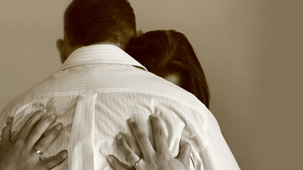
Helping People with Serious Mental Illness and Substance Use Disorders During DisastersOver the past few years, people across the United States have dealt with disasters of various sizes such as category 5 hurricanes, mass shootings, and wildfires. Most people touched by a disaster, whether directly or indirectly, are affected in some way. Many disaster survivors are able to move on and cope with the “new normal” of life after a disaster, while others may find their situation harder to handle. Preexisting conditions such as a history of serious mental illness (SMI) or a substance use disorder (SUD) may play a role in the ease of their recovery. This special double issue of The Dialogue from the SAMHSA Disaster Technical Assistance Center (DTAC) highlights the process of assisting disaster survivors with SMI and/or SUDs after a disaster. Authors share their knowledge on how these individuals may need additional support to aid their recovery after a disaster and how to provide better assistance. Has your program had success working with disaster survivors with SMI or SUDs? Do you have suggestions or lessons learned from your experiences? Please email your experiences to us at dtac@samhsa.hhs.gov. We’ll print selected reader comments in a future issue of The Dialogue. | ||||||||||||||||||
Recommended ResourcesThis article from the National Center for PTSD reviews research on how individuals with SMI may react to a disaster. It covers the likelihood that people with SMI will develop posttraumatic stress disorder (PTSD), as well as how disasters and war may affect people with SMI. The article also describes ways mental health professionals can meet the needs of individuals with SMI. This handout from the National Child Traumatic Stress Network discusses the potential for substance use and misuse after a disaster in an effort to relieve negative feelings and symptoms. It also explains the importance of choosing to stay in recovery for individuals that have had substance use issues in the past. Tips on how to maintain recovery include increasing attendance at support groups and talking to loved ones about providing extra support. This course provides information to help first responders ensure safety for all involved in calls in which an individual is in crisis related to a mental illness or SUD. The course covers signs and symptoms of specific mental and SUDs, risk assessment, and de-escalation techniques. This guide from the National Alliance on Mental Illness (NAMI) describes mental illness and mental health crises and offers steps to take if a crisis occurs. An individual may experience a mental health crisis because of a variety of stressors, including trauma and exposure to violence. This guide provides techniques to help de-escalate a crisis, details of a medical or law enforcement response, and more. This manual from the SAMHSA Store aids disaster response workers in assisting survivors after an act of terrorism or mass violence. It has a section on individuals with SMI and their potential need for additional support after a traumatic experience. About The DialogueThe Dialogue, a quarterly technical assistance journal, is an arena for professionals in the disaster behavioral health field to share information, resources, trends, solutions to problems, and accomplishments. Read previous issues of The Dialogue. The views, opinions, and content expressed in this publication do not necessarily reflect the views, opinions, or policies of the Center for Mental Health Services (CMHS), the Substance Abuse and Mental Health Services Administration (SAMHSA), or the U.S. Department of Health and Human Services (HHS). |





































No hay comentarios:
Publicar un comentario